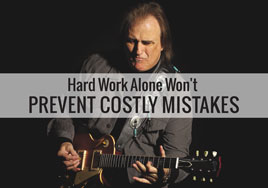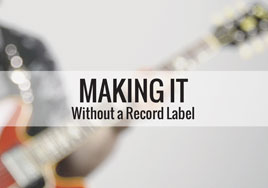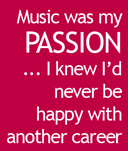Hard Work Alone Won’t Prevent Costly Mistakes
By Estimated reading time: 9 minuteswritten by: legendary guitarist Rocky Athas
When I started my career as a guitarist, I was focused on being able to play guitar all day, every day, at every possible opportunity. I was young and excited to live the life of a musician (truth be told, I’m still excited about playing, writing, and recording music). I thought that if I worked hard, I’d make it, and everything would turn out okay. While I’m proud that I lived by that standard and worked my ass off, time has shown me that the theory is flawed. Yes, it’s incredibly important to build a solid foundation on hard work… but real success requires something more.
My years of hard work would have gone much further sooner if I had known a few things up front. When I was young, I knew little of how the business side of music really worked. I did not know what my rights were, and I trusted the people I worked with. Surely they had my best interest at heart…
My lack of awareness and naivety resulted in a number of headaches and heartaches. I’m not too proud to admit that I learned these lessons the hard way. I’m a bit wiser now.
What surprises me today is how much things have remained the same. Even though new tools and technologies are available to musicians, we still face many of the same challenges I faced years ago. Now, I want my fellow musicians to be able to turn their passion into a sustainable business (which happens to be my personal goal). I also know how big a difference real wisdom gained through experience could have made in my early career. So, I’ve decided to share some of my experience with you.
To all musicians—young and old, novices and pros, local legends and road-weary warriors, solo artists and band members, rock stars and country crooners and rappers and everyone in between: please, let my mess be a message to you.
Early Times were Good Times… Mostly
In the 80s, I was hired to play guitar with Black Oak Arkansas. For those unfamiliar with the group, BOA was one of the top 5 touring rock acts in the 70s. They earned three gold albums and sold close to five million records from 1972 to 1976. BOA’s frontman, Jim Dandy, was a huge influence on later acts (like Van Halen frontman David Lee Roth). Bands that are legendary today—like KISS, Bruce Springsteen, and Aerosmith—all opened for BOA. Given the band’s status, I was more than happy to be a member.
When I joined BOA, the group had an attorney that also acted as their manager. They had also signed a record deal with a label and had received a sizeable front, to be used for recording an album. Not one penny of that front money was disbursed to the musicians; it all went to studios, engineers, lawyers, and other professionals that the label hired.
As happy as I was to be in the band and to be recording, I was thrilled when they asked to use five of my songs for one of their albums. Songwriting was not part of my compensation agreement with the band, so I was entitled to receive royalties for my songwriting. I was very excited about this new opportunity.
Getting Paid is Not So Easy
Of course, getting paid for the songs would’ve been nice. That’s right. Even though five of my songs were recorded, I didn’t get any money. Not for writing the songs, not when they were played, not when they were recorded, and not when the albums were sold. No royalties whatsoever.
Now, to the band and the record label’s credit, it wasn’t their fault that I wasn’t paid. As unbelievable as it may sound now, BOA had trusted everything to the manager/attorney that had been hired to handle the band’s business, and we focused on making and recording music. After all, it made perfect sense to think that a manager who was also an entertainment attorney would do a great job representing us as the musicians of BOA. The rub came because the manager was also our attorney, which created a conflict of interest. A good attorney is focused on the best outcome for the people they represent. When that same attorney represents himself as the manager of the band as well as the personal interests of the musicians in the band, it creates a problem.
At the time, none of us understood the conflict of interest that had been created by allowing our manager to also represent us as our attorney. After all, we were famous because of our music, not our business degrees.
Lesson learned: never allow your manager to also be your attorney.
One of the business aspects handled by this manager/attorney was the distribution of income from mechanical and royalties payments; these came from the record label and were to be distributed to the songwriters. And… well, he handled it, wholly and completely. If we asked about payments owed to us we were told “all the money was used to offset expenses”, that nothing was left for us. However, we were never told what or how much those expenses were, and we were never given statements to review and reconcile. In retrospect, I now realize that if our manager had not also been our attorney, we could have gotten to the bottom of this problem.
My patience began to wear thin. I was all about creating music and performing, but I found it difficult to focus on the music I loved. Was I getting screwed by the very people I trusted? All I needed was a little cooperation and clarity, but after a number of failed attempts to resolve the problem, I became even more frustrated. It appeared that our manager/attorney was not able to provide the information that I needed to see. Details showing how the money was spent and what royalties were paid were not available to me.
Very frustrated, I decided to leave the band.
It Just Gets Better
Sadly, the story doesn’t end there. A few years later, I was out shopping with my wife, killing time while she did her thing. I was perusing the many CDs offered in this huge retail chain store when I saw a brand new release—a greatest hits album for BOA. Curious, I turned it over and looked at the track list and credits. Sure enough, two of the songs that I had written were on this new album… and I had NO idea! Again, my songs had been used without compensation, and this time they didn’t even bother to tell me about the release!
As you can imagine, this discovery really ticked me off. Instead of walking away like I had before, I hired my own lawyer to find out where my royalty payments were and who was holding them up.
It turns out that the record label had paid my royalties all along… straight to the BOA manager/attorney, just as I had suspected. These were the royalties that were supposed to be disbursed to the songwriters. That was, after all, how our contract had been written. So my new lawyer went after the band’s old manager/lawyer, trying to get my royalties back for me. Sounds easy enough… except the old lawyer had died a year or two earlier, and everything was tied up in probate.
After spending a good chunk of money to find and recover my royalties, my new lawyer told me this: it would likely cost more money in legal fees to sort through the probate mess than I was actually owed. Of course, we had no way of knowing how much I was owed unless we pursued the matter further. So, did I spend more money to recover an unknown amount… or did I let it go?
I let it go.
This means that the only people making money on those five songs were the manager/lawyer (and whoever inherits any fortune he might have left behind)… not the band and not the songwriters (including myself).
Lessons Learned
There are several morals to this sad and embarrassing story.
First and foremost: Be careful who you trust, and only trust what you can verify, and never use your attorney as anything but your attorney.
Second: You’re never too big to be swindled, misled, or mismanaged.
Third: Take responsibility. I am ultimately responsible for the situation I was in. I signed a contract I couldn’t verify and I was forced to trust those I was working with—this led to lost opportunities and an unknown amount of lost income.
To this day, I do not know how much money I lost to the pocket of that lawyer, and I’ll probably never know. It was an expensive mistake, but it hasn’t been a complete loss. I’ve learned that my music career is really MY business, and that no one but myself is responsible for it.
In light of that, I’ve worked hard to educate myself on aspects of the business that I have ignored in the past. Going forward, I won’t make the same mistakes. And I never sign anything that I don’t fully understand. You cannot expect others to do the difficult stuff for you if I you are unwilling to do it for yourself.
My hope in writing this article is that you don’t have to learn these painful lessons firsthand. So, listen up. Be smarter than I was. Don’t blindly let someone else handle things—royalties, sales, anything—for you. Pay as much attention to the business side of your career as you do to making and playing music. Don’t let your hard work—your writing, playing, and recording—be for nothing. Hard work is very important, but being involved and caring about the mundane details of your own career in crucial.
Want to know more about me? Check out my new album or biography or find me at a show near you. I’d love to meet you!
...Keep Reading




















